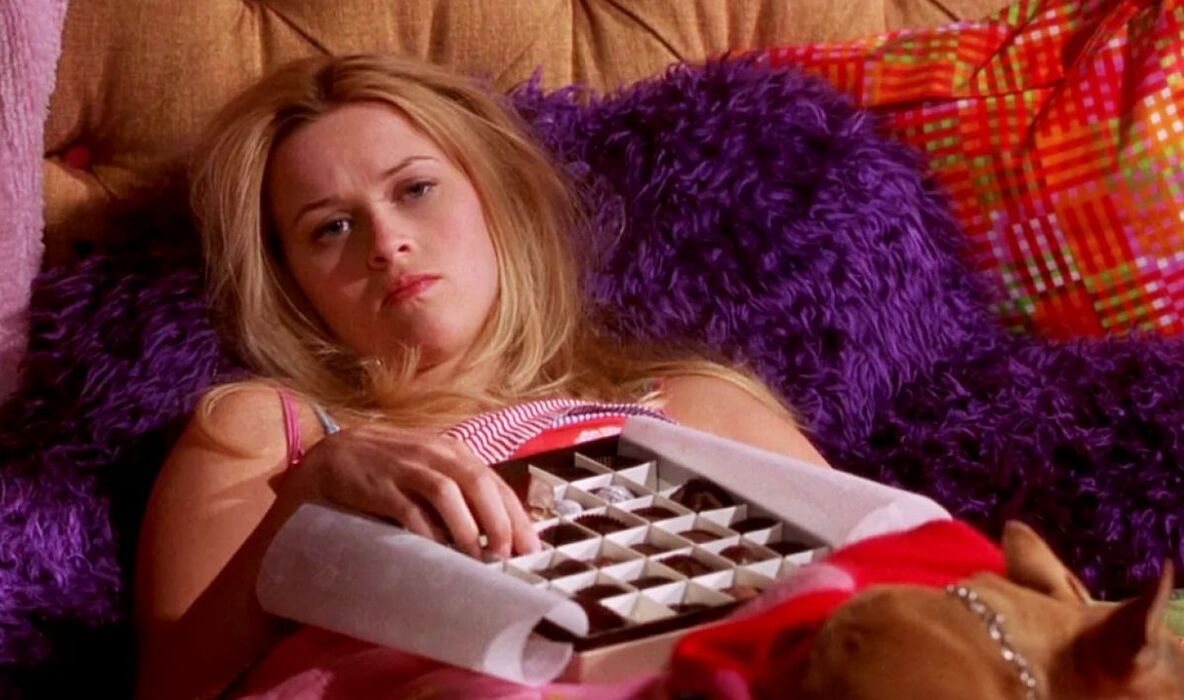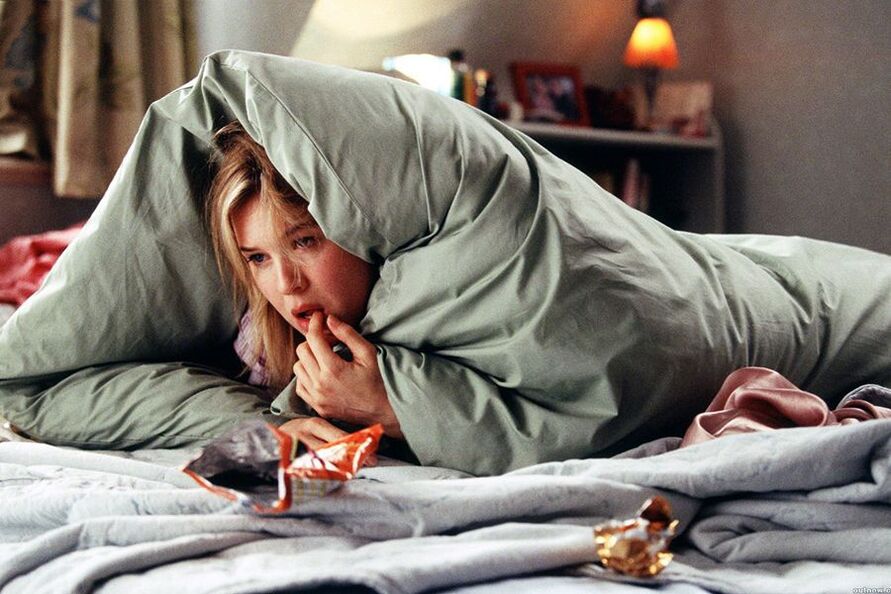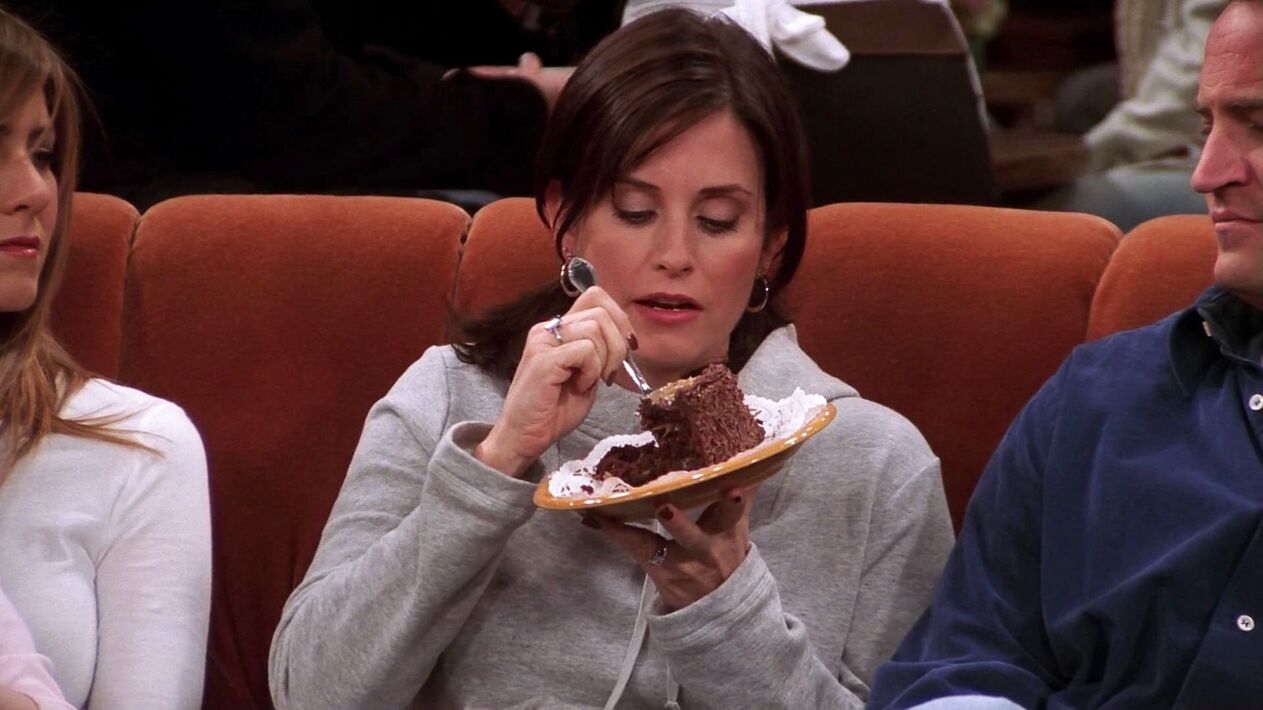
The title contains a popular query from search engines. However, this article will not give advice like "Count to 10 and for a glass of water". Let's talk about something else: why it's a bad idea to force yourself not to eat to lose weight, and how to deal with your attitude to food.
What's wrong with not eating to lose weight?
Practical psychologist: If you have a healthy attitude to nutrition, then you are in contact with your body - you hear its signals and know how to negotiate with it. If the body signals hunger, you saturate it, and satiety stops eating. The message "do not eat to lose weight" implies the severance of this connection, self-confrontation and the manifestation of auto-aggression. It turns out that you take measures against yourself to achieve the goal (lose weight). This is not goodOboring and unhealthyOin.
Psychiatrist: Most people who lose weight as a result of a restricted diet recover their weight within 1-2 years. In addition, 2/3 of them earn more than they lose.
Endocrinologist:The message of forcing yourself not to eat to lose weight is illogical. It is important to understand: what happens to the body? Maybe it's not the wrong diet, but hormonal characteristics.
And what is everything - a healthy attitude to food?
Psychiatrist: This is a time when regular meals and snacks are not accompanied by anxiety, embarrassment and guilt. Absence of "forbidden foods", diet and calorie counting. And when you allow yourself to enjoy the food.
Endocrinologist:It is about approaching food as a condition of a full, happy life. And not as a substitute for joy and pleasure.
Practical psychologist: This is the time when you eat from hunger, when you are full, when you do not pay attention to the shortcomings of your body, which must be "corrected" by eating or giving up, when you do not overeat, when you do not capture emotions.
Can you give more details? How and why do we eat emotions?
Practical psychologist: There are no good or bad feelings for the psyche, it can cope with any feeling. He does not need food, alcohol, gadgets or a TV. However, there are situations in which a person suffocates his emotions by eating. I got upset, ate a bowl of ice cream - it was easier. His behavior took a positive turn, and the person began to refer to this strategy again and again.
Counseling psychologist:Often people overeat because they do not rest. Let me give you an example. The young woman faced a problem: she ate a lot in the evenings and could not control herself. It turned out that he employs three people, because he does not know how to give up his colleagues. No time to eat a meal: always work. He can't eat in the evening. That is, a person is exhausted, overworked, constantly stressed. How to recover lost energy? Burgers, potatoes, chocolate.
Is it wrong to eat when you are bored, anxious, angry, tired, or sad?
Counseling psychologist:In itself, this is neither good nor bad: food is unconsciously associated with safety. Food for a newborn is not just food, it is closeness to the mother, calmness, trust, acceptance, love, communication. Adults also sometimes eat to calm themselves. It is bad when it is the only way to deal with anxiety or fear.
Psychiatrist: With food we meet different psychological needs. For example, having dinner with your family is close. Going to a restaurant with friends eliminates the need for social interaction. The problem arises when food becomes an armpit for our negative experiences. This brings us to the topic of eating disorders (EID) or eating disorders. Psychiatry deals with these problems.
Wait, wait! It turns out that if I eat a bar of chocolate in an hour and feel guilty - is it already a disorder? Should I go directly to a psychiatrist?

Practical psychologist:A complex issue. There are situations when a person runs away, eats chaotically, and does not pay attention to what he is eating. Or eats when you're not really hungry - out of boredom or for company. It can be an eating disorder that can only be corrected by a nutritionist. But at the same time, starvation is one of the symptoms of RIP. The line is very thin. And only a doctor can prescribe it. We have a psychiatrist who deals with this.
Endocrinologist:It seems that a person is always sad, anxious, tired - and he takes over these problems. Maybe it's the result of constant stress. However, they are also symptoms of endogenous depression and anxiety neurosis. A psychiatrist is also involved in the diagnosis of such cases.
But isn't ERP Bulimia and Anorexia? Symptoms are difficult to confuse
Psychiatrist: It's not just bulimia and anorexia. Eating disorders also include psychogenic overeating (also called paroxysmal or compulsive), inedible food intake (Pick's disease), and psychogenic anorexia. These are disorders included in the International Classification of Diseases (ICD). However, there are disorders that are not included in this list, but also attract the attention of psychiatrists: selective eating disorders, orthorexia (when the desire for a healthy lifestyle exceeds all limits) and pregorexia (the most severe restrictive diet in pregnant women). .
Practical psychologist: Psychology also distinguishes between Overeating Syndrome (BOE): when a person eats almost nothing all day, cannot sleep for a long time, or wakes up often and goes to the refrigerator when he wakes up.
Is obesity also ERP?
Psychiatrist: Not always. There can be many reasons - these are genetics, sedentary lifestyle and hormonal disorders. RPP cannot be equated with obesity.
Practical psychologist: Yes, I agree. There are people with completely healthy eating habits who are obese. And the opposite happens - for example, patients with anorexia nervosa.
Have you heard that the problem of the PPFA is mainly related to women, teenagers and models? That is right?

Psychiatrist:Of course not. The disease can develop in both men and women at any age. For example, selective eating disorder most often occurs in children - the child eats only certain foods.
Practical psychologist: Anorexia and bulimia are more common in women. But compulsive overeating is the same in men and women. Thus, it is impossible to say that the PPFA is a purely women's problem. Yes, teenagers, models, athletes (rhythmic gymnastics, figure skating, sport dances), TV presenters, bloggers, actresses - everyone involved in aesthetic sports and their work depends on their appearance. But the problem can affect anyone, including those far from the modeling business or beauty blog.
It is believed that any food problem is an attempt to attract attention. That is right?
Practical psychologist: There is such an opinion, but it is not scientifically substantiated. Yes, RPP can occur when a person is not accepted by their peers during therapy. For example, for a girl aged 13-15, it is important that boys look at her and her friends like her, so she went on a strict diet. It also happens that food problems are often unconscious in an attempt to get the child's attention. But these are very special cases. It is wrong to think that the need for attention is the main cause of eating disorders.
What is the reason?
Practical psychologist: There are three groups of reasons: biological, psychological and social. Biological - for example, genetic predisposition to RPC - can unfortunately be inherited. Psychological - domestic violence, prohibition of negative emotions, violation of parent-child bond (for example, if the child has a cold, distant parents). Social - a cult of ideals of beauty, delicacy, violence.
PsychiatristAnswer: There are certain personality traits that can contribute to the development of EID, such as perfection or hyperresponsibility. Features of eating behavior in the family, attitude to weight and figure also affect. The child could be rewarded with sweets for good behavior and lessons, and it stuck: you can take candy because I'm good. Very Good? I'll take ten.
Counseling psychologist:Many patients with ECD have been physically or sexually abused. Also, for many, eating helps them to take advantage of the situation. For example, one of my clients needed weights to protect himself from men. During therapy, we learned that a school-age girl had an unpleasant situation with an adult man. The customer was surprised to remember this: the story seemed "forgotten", but it continued to influence the girl's behavior during adolescence. They also expressed the belief that men love only the delicate. If so, the extra weight helped her to be "safe", ie without men.
How common are eating disorders in society?

Psychiatrist: It is estimated that the prevalence of RPC in the world is about 9%. The prevalence is higher in risk groups. There are studies on adolescent girls that show that about 13% have CRP symptoms before the age of 20. Anorexia is one of the deadliest mental disorders that can only prevent chemical dependence.
Practical psychologist: It is difficult to say the exact numbers, because people with PADs often do not understand that they need help. As the center of research and statistics on eating disorders, there are figures for the United States: there are about 30 million people living with eating disorders. The number of women is twice that of men (20 million against 10 million). And at least one person in the world dies every hour as a result of RPE.
What are the symptoms of RPE? Can I diagnose it myself?
Psychiatrist: In general, the main symptoms are:
- A person vomits after eating or compensates for what he eats in other ways, such as excessive physical exertion (physical abuse), laxatives, and diuretics.
- Strong fixation on weight and figure (you can't add / lose a gram or centimeter! ).
- Numerous attempts to reduce changes in weight and body weight.
- Numerous different rules in nutrition (I eat only protein, only vegetables, only red).
- Constant thoughts, fears and feelings of guilt and shame regarding food intake and body weight. When thoughts and behaviors related to food cause a lot of suffering.
- Loss of control over the amount you eat.
However, many may have varying degrees of symptoms. Is there a more accurate diagnosis?
Endocrinologist:RPD is a systemic chronic disease. Causes metabolic changes in systems and organs, changes in human neurohumoral regulation. It is a complex problem that can manifest itself in neuroses, organic pathologies of the brain, organic injuries and depressive disorders.
But first you need to determine the cause of symptoms. For example, if a person runs to the refrigerator at night, you need to study glycogen levels to rule out insulin resistance and type 2 diabetes mellitus.
What if you or someone you love understands that you are an RPP?
Practical psychologist: If any - consult a psychiatrist for diagnosis. If you suspect an RPP in a loved one, it is even more difficult: he often refuses, does not want to admit that something is wrong with him. And unnecessary pressure can break trust. Let your loved one know that you are on their side and ready to help and support them.
Who treats ECD? Just a psychiatrist?
Psychiatrist: No. A psychiatrist diagnoses. And depending on the disease, he recovers from a psychiatrist, psychotherapist, clinical psychologist (as prescribed by a psychotherapist). Why is it so important to see a psychiatrist first? This is because it can detect a comorbid condition such as depression or anxiety disorder, which occurs in about 80% of cases in people with RPD. Treatment depends on the severity of the disease. There may be drug treatment in combination with psychotherapy (group, cognitive-behavioral, dialectical behavior). Family therapy is also recommended.
Counseling psychologist:Anorexia and bulimia are primarily treated by a psychiatrist. Emotional overeating - psychologist, counseling psychologist. Obesity - a nutritionist-endocrinologist with a psychologist or psychotherapist (it is necessary to check hormones, metabolism is disturbed).














































































